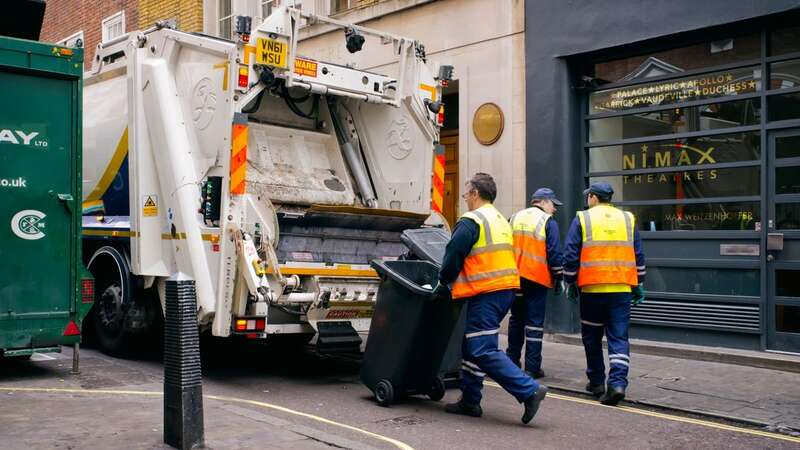A new simpler ‘three bin’ policy will see glass collected from every home and garden waste picked up - here are the new recycling rules in full.
Major changes are being introduced across England in 2026 including a once-a-week minimum requirement for waste food collection. And the complicated plans for ‘seven bins’ have been scrapped.
With a focus on the recycling system being more simple it also means that plastic, glass and cardboard will all go into the same bin. The Government hopes that the changes will mean that there will be less waste that is going into landfill sites.
“As previously confirmed by the Prime Minister, the new plans for simpler recycling will make sure that households will not need an excessive number of bins,” read a statement from the Government. “The reforms will bring in a more convenient and practical system which prevents councils from being hit with extra complexity, while making sure all local authorities collect the required recyclable waste streams: glass; metal; plastic; paper and card; food waste; and garden waste.”
Recycling Foods
Food waste will be collected weekly under new measures introduced by March, 2026. Unless the local waste authority is on a long-term contract. This includes any food for human or household pets consumption.
 Plastic cutlery and polystyrene cups to be banned in England from October
Plastic cutlery and polystyrene cups to be banned in England from October
Examples:
- Bones
- Eggshells
- Fruit and vegetable skins
- Tea bags
- Coffee grounds
Garden waste
Local authorities will provide a garden waste collection when requested and it is up to the council to choose to take food and garden waste together. The council can also choose whether to pay for this service. The Government is also consulting on an exemption to allow food and garden waste to be collected in the same bin.
Garden waste that will not be collected:
- Ash
- Full-sized trees
- Invasive weeds
- Soil
- Turf cuttings
- Animal waste
Dry recyclable materials
Local waste authorities are to collect all dry recyclable materials from one bin and these include glass, metal, plastic, paper and card.
Metal dry recycling includes:
- Steel and aluminium tins and cans
- Steel and aluminium aerosols
- Aluminium foil
- Aluminium food trays
- Steel and aluminium jars and bottle lids
- Aluminium tubes
Plastic dry recycling includes:
- Plastic bottles made of polyethylene terephthalate (PET)
- Pots, tubs and trays made of PET
- Plastic tubes larger than 50mm x 50mm made of polypropylene or polyethylene
- Cartons for food, drink and other liquids
- Plastic film packaging and plastic bags
All paper and card will be collected except:
- Paper and card that contains glitter or foil
- Paper that is laminated
- Stickers and sticky paper
- Padded lined envelopes
- Paperback and hardback books
- Wallpaper
Residual non-recyclable waste
The plan is for local authorities to collect non-recyclable waste at least every two weeks.
The current collection system has been described by Environment Secretary Therese Coffey as a “postcode lottery”, which sees people living in different areas unable to recycle the same materials. For example, glass isn’t currently collected from homes in Leeds but it is in Sheffield, reported Yorkshire Live.
The government has promised to provide "reasonable funding" to cover any extra costs from the changes, with money coming from a combination of new burdens funding and payments through Extended Producer Responsibility for packaging.
 Brits will be paid cash to recycle old bottles and cans - but not until 2025
Brits will be paid cash to recycle old bottles and cans - but not until 2025
Ms Coffey said: "Simpler recycling will help us all recycle more easily, doing our bit to help save the planet and make the best use of precious resources that we use every day. Alongside weekly food waste collections, we are ending the postcode lottery of what you can put in your bin so that wherever you live in the country, you will be able to recycle the same products with confidence."
Read more similar news:
Comments:
comments powered by Disqus

































